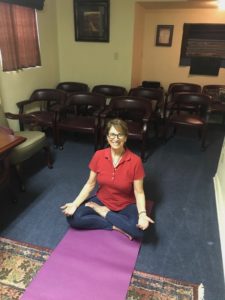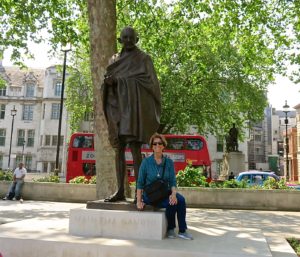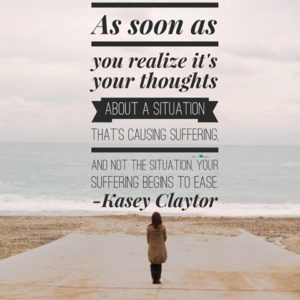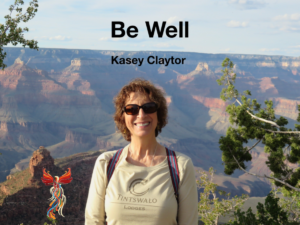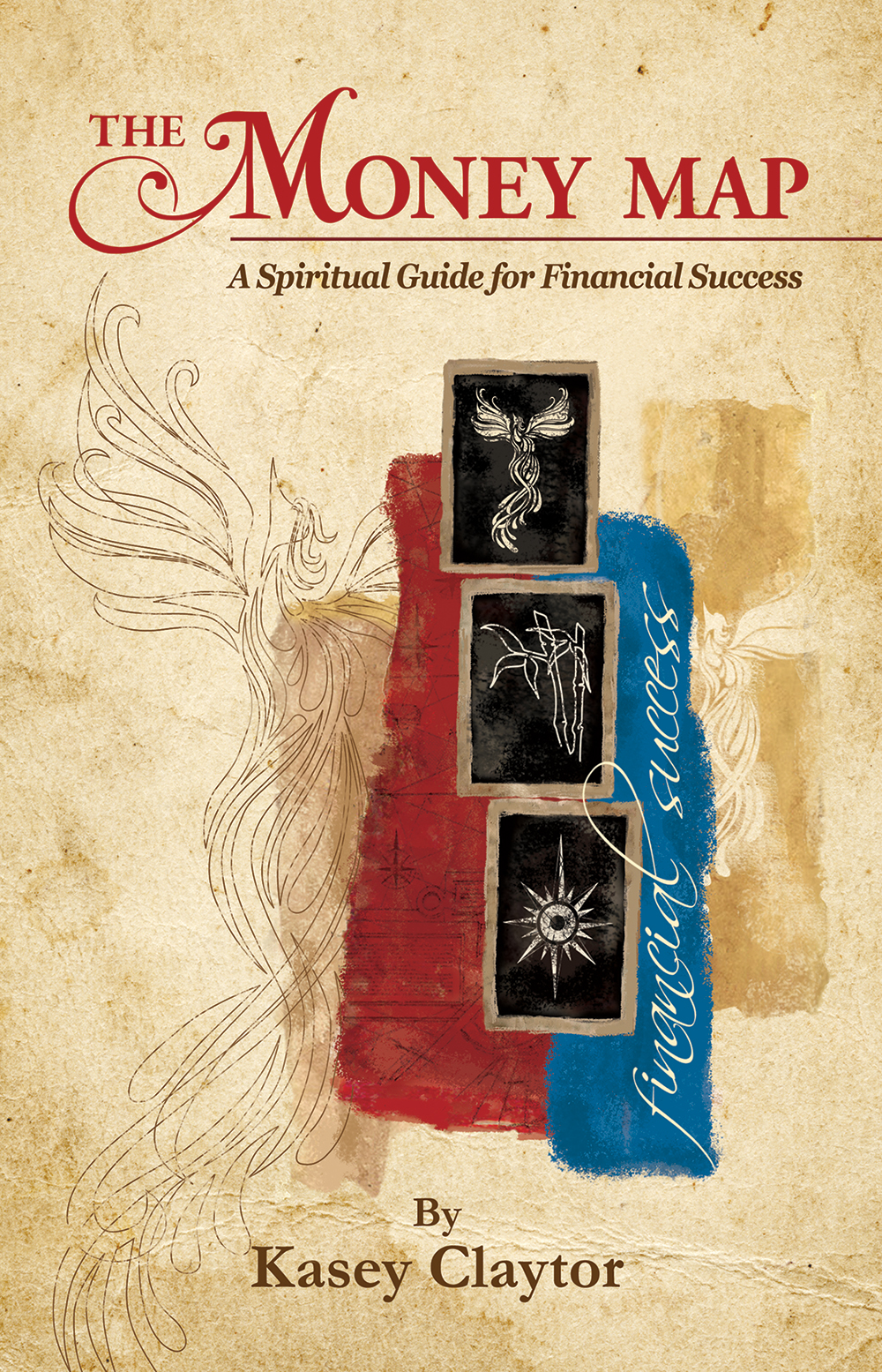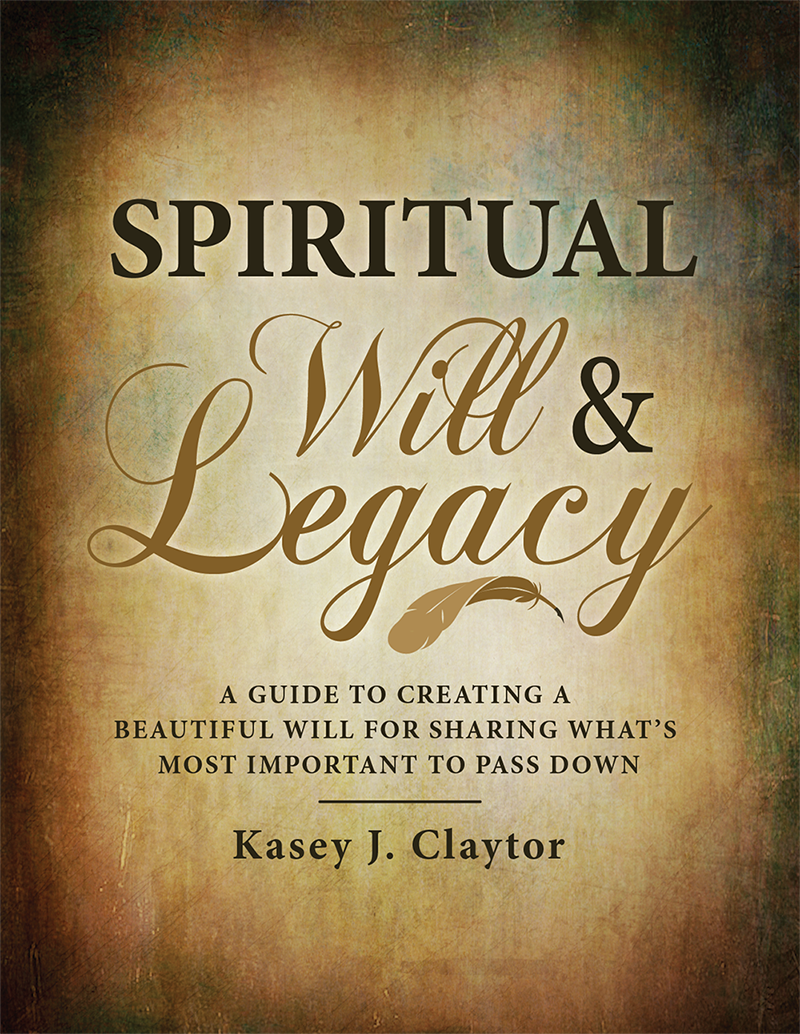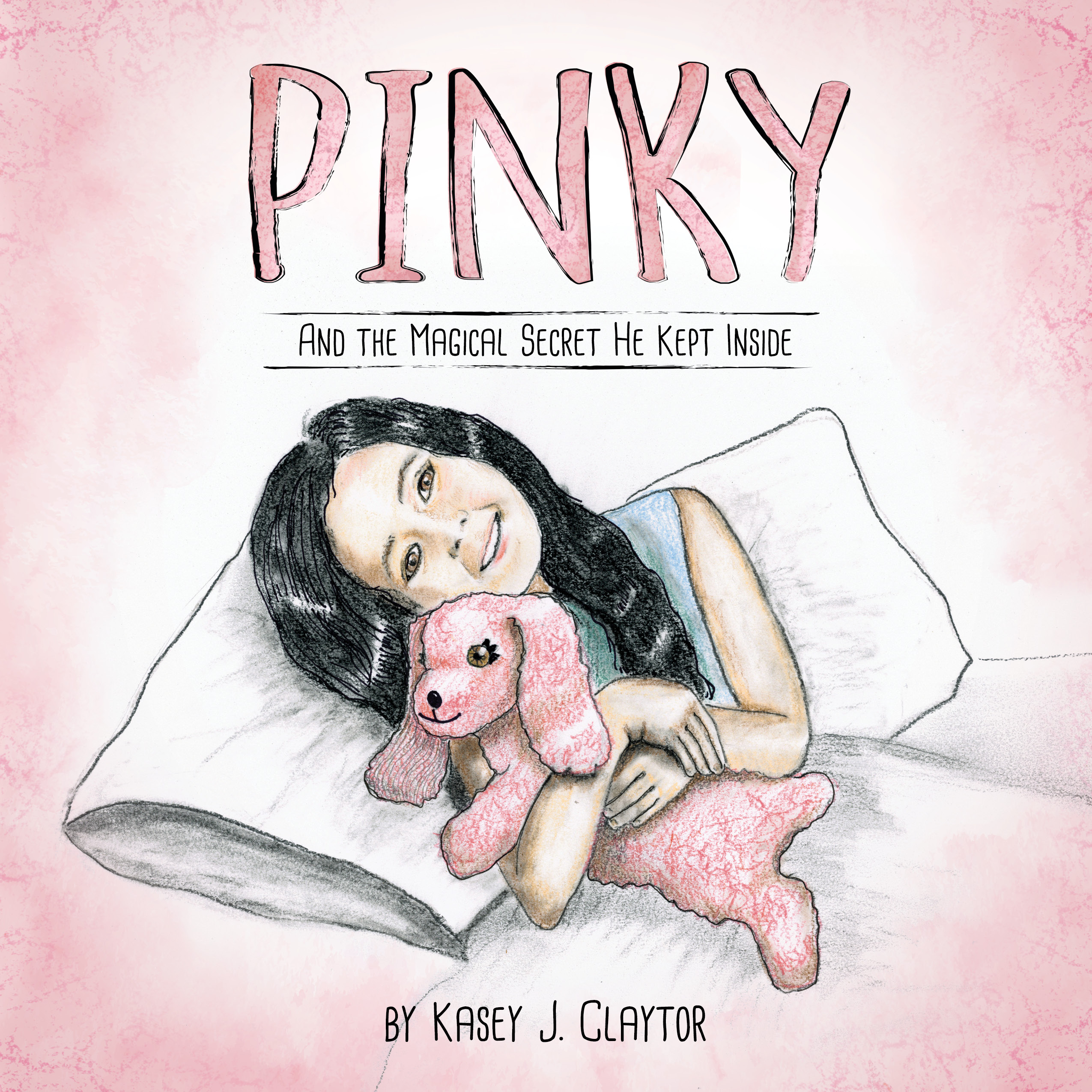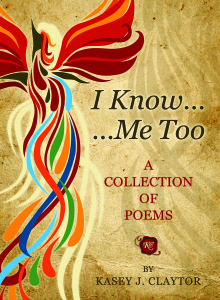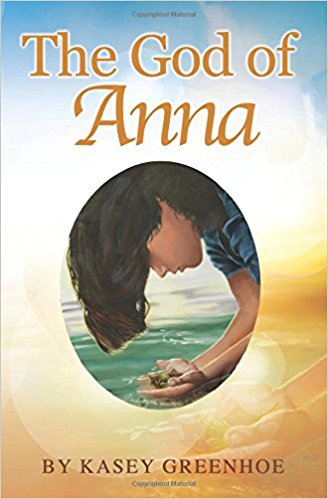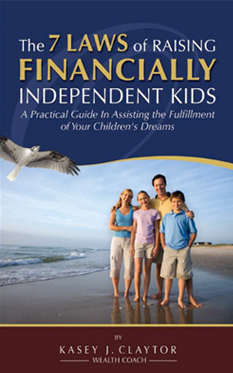I just made room in a filing cabinet for about 15 pounds of files for my son’s care: finances, medical records, legal documents, disability insurance papers, health insurance, work records, address changes and bills. Very heavy both physically and emotionally as I’ve carried them back and forth from home to work, work to home, because I never knew when I’d need information that was in one of those folders. I’m in a window where I can put it all down for a time.
I’m writing to you today about this because now that I have the added stress of the Coronavirus, and trying to keep our family safe, it is more important than ever to stop and recognize how we are doing, find what works and what doesn’t to help us maintain good physical and mental health in rough times. Along with doing this for myself I wanted to share it with all of you. Believe me, when I write recommendations like this, they are very much for myself too!
My older son was diagnosed with Frontotemporal Degeneration, a mysterious disease that affects people, usually between 45 and 65. I know of one afflicted with it who is only 26. Unlike Alzheimer’s, it usually shows up with personality changes that can be so subtle that the affected person’s family, though confused by some behavior, may miss the severity of the onset. Memory is eventually affected and this disease includes dementia.
I tell you this because it has been extremely challenging, and out of necessity, I am finding I must embrace all the skills, practices, and knowledge I’ve learned from following my interests in health—physical and emotional—and spirituality. And I’d like share a few pointers and suggestions to find some relief yourself, especially if you feel overwhelmed, irritated, sad or depressed during this difficult time. Life can be hard enough just getting through normal times!
I don’t presume any of these ideas will bring you wonderful normalcy or complete relief, but every small thing you can do to take care of yourself is very important.
Here are my 7 suggestions, all of which I depend on at different times. I wouldn’t like to wonder where I’d be without these practices. I know I’d be more anxious, with deeper sadness, harder to get alone with, and less loving.
In brief:
- Be easy on yourself and take care of each other
- Create balance
- Taking care of your physical self
- Meditate
- Be in the moment
- Taking care emotionally/emotional intelligence
- Look to our experts
1) Be Easy on Yourself and Take care of each other
We might all be feeling more irritable, more anxious or sad. This makes it so easy for us to say things we don’t really mean to loved ones, make quick judgments without thinking, or pull away from others. Taking good care of ourselves enables us to be more patient and understanding with others, who are also feeling the stress. Best practice is to be very quick to forgive yourself as well as others, start over, release those judgmental thoughts, and be present. Find a trick or a mantra to remind yourself when things begin to bother you. One I use is “It doesn’t matter,” Or Om Nama Shivaya. More on forgiveness in the section on emotional intelligence below.
When emotions grip you, find a moment to sit quietly and ask yourself where are you feeling this in your body? Your chest, gut, throat? Be present with the sensations without resisting them or repressing them. Give the feeling a label; I’m angry, I’m frustrated etc. They want acknowledgment! They usually slowly dissipate after the feelings have been acknowledged. You may find yourself doing this several times and that is OK. That tightness, that ache, that pain, left unacknowledged will get louder in another form if it is pushed away, ignored or repressed.
And think kindness. First to yourself and then others.
2) Create Balance
Since most of us are home-bound we have a lot more time to see what needs to be done around the house; maybe we start some big home projects, or maybe we become more sloth-like and take a lot of naps! We need balance.
Balance in our rest/activity, sleep/wake, and balanced diet, as well as play and work.
When working on a project, on the computer, or chores, break it up with things you enjoy doing; reward yourself for each accomplished task.
A great reference I refer to is Ayurvedic recommendations. The premise of Ayurveda is balance itself, in all ways. So much of this body of knowledge is finding validation from modern science. That is, modern science is discovering the truths Ayurveda knew thousands of years ago.
According to Ayurveda there are three main doshas, or mind/body types, and everyone is a combination of these. I recommend going on the Banyan Botanicals website to take the quiz and see what your make-up is, and what suggestions for a balanced diet and daily plan is for your Dosha.
I covered the wake-sleep cycle in this article a few months ago. sleep/wake cycle,
3) Taking care of your Physical self
Walking is an excellent form of activity that is good for all body types. If you tend to be thin, you are most likely a Vata body type, and Hatha Yoga or some other slow, mindful yoga is best. If you are athletic, with good muscle formation, short spurts of more intense exercise are good. If you tend to be stocky and have good stamina you can do just about any exercise. Please refer to your health providers before changing your routine. You can also check more recommendations on the Banyan website once you learn your Dosha type.
Another wonderful practice to reduce stress is massage. The benefits are well documented: the mental relaxation, the flushing of toxins, boosting the immune system, and lymphatic drainage. Right now, we are unable to get massages from a masseur, but we can do it ourselves with a self-massage. I do this in about 5 minutes before jumping in the shower. Use a pleasant scented natural oil and slowly massage your body beginning at the scalp, (or face if you aren’t washing your hair). For my Dosha, Vata/Pitta, I use sesame oil, cured, with a few drops of vetiver, sweet basil and patchouli. To cure the oil, buy organic sunflower, sesame or coconut and simmer until you see it churn a bit and a water dropped into it pops. Don’t let it boil. Allow it to cool before returning it to its bottle. Then add the essential oil. Here are complete instructions.
4) Meditate
For me, this is essential. I know it is so easy to find you don’t have time, feel like you can’t stop your thoughts, and while sitting trying to meditate, you think of so many things you could be doing. But nothing will give you the same benefits as meditation. No matter how many times you’ve tried, know you can meditate.
First rule, you cannot do it wrong, and any ‘trying’ must be let go of. All it requires is sitting still on your chair or mat with your eyes closed or slightly open and gazing down. Everyone, even the most experienced meditators, have thoughts going through their minds. So what? Have a phrase or mantra to repeat over and over, and when you find you are deep into the story your thoughts are telling you, stop, and pay more attention to the silent repetition of your mantra. It could be Let go, Let God or Peace, be Still, or any of the traditional mantras like So Hum. Here is my short discussion and instruction on my resources page. There are also many guided meditations. Deepak Chopra has some excellent ones on YouTube and Facebook.
I admit I’ve gone through upheavals where it hurt my daily practice, but looking back, the faster I was able to incorporate this daily practice back into my life, the faster my life reached a state of more wellbeing.
Being a meditator doesn’t mean your life becomes a smooth, completely pleasant one. Of course, events and situations pop up, like this Covid-19, problems with other people in your life, illness or hardships, and all the things we experience in daily life. But you may find how you respond to these things gradually changing. You may find your highs during the day are a little higher, and your negative feelings come perhaps not so strong. Your irritation may come with more awareness, you might find yourself empathizing easier, understanding on a deeper level. If you could graph your moods during the day—
the highs and lows—you could see the shift, and that shift is a rise in consciousness.
When I am knocked low because of events I cannot control, and my emotions erupt into a full-blown storm, even then I know I have tools, there are things I can do immediately to lift some of the anxiety, anger or sadness. Sometimes is takes more than a day to get my balance back, But, so far, I always do.
As you learn to meditate, be easy with yourself. If you feel you failed or forgot to meditate, be gentle instead of self-condemning. Forgive yourself and start over.
5) Be in the Moment
Know this is temporary, practice presence.
“Everything will be okay in the end. If it’s not okay, it’s not the end.” ~ John Lennon
Being in the moment is another way of saying be mindful. It means that whatever you are doing, you are paying complete attention to it instead of tuning in to the constant parade of worries about the future or lamenting over the past. Even currently, you may have more than one problem in your life—we’re all stressed by the Covid-19—or you are worrying about a loved one. Yet in this moment, while you’re cutting vegetables, on an errand, opening mail, paying bills, worrying at this moment isn’t a bit productive. I knew a counselor who called this disaster planning.
One thing I do is put that concern on an imaginary elevator of my mind, up and away, maybe even writing it down. Then I go back to chopping those vegetables in a mindfully, totally present way, and, as does often happen, later, with a clear mind, a solution to that problem will emerge.
When we are focused on our inner stories—what will happen, how bad things are, what happened in the past—not only are we missing the beauty of this moment of life, but we are sending fight or flight hormones throughout our body. Every cell is listening to your emotional state, your anxiety heralding warnings to brace for some unknown enemy with perfectly orchestrated reactions, and every system is affected. When this becomes a constant state, it is inevitable that it affects your wellbeing in small or big ways.
Being in the moment, mindful, right now, reverses all that. There are so many things we can do to shift this. Moving our attention from our thoughts and our mind to our bodily sensations is a big one. Yoga is great for this, as is mindful walking, most sports, or delving into your passions: a hobby or creative activity like quilting, writing, drawing, building things, anything that you need to focus in the here and now. Peace Be Still.
6) Emotional Intelligence
What is emotional intelligence? Depending on whether you’re using this term as an attribute, as part of a person’s character, maturity, or other quantifier, we instinctively know the more emotionally aware and knowledgeable we are about what we or other people are feeling, the better we are at dealing with difficult emotions.
Very much like the consciousness studies of Dr. David Hawkins and the Integral Psychology theory of Ken Wilbur, we know there must be a graduating scale upon which we find our own level of understanding of ourselves and the world. The more we understand, the more aware we are of our own motivations and others, the easier it is to overcome strong, unpleasant emotions. Haven’t you been so upset at another person or situation, that your peace is destroyed? Your thoughts about it causes unpleasant, visceral reactions in your body, affecting your sleep, and making you irritable, sad, or anxious? It is like a dark mood has taken over your whole being. While you’re blaming someone, blaming yourself, or just trying to repress it, you can’t seem to move past it. Eventually something has to give, and hopefully it isn’t causing more drama or creating an imbalance in your body.
One of the biggest signs that you are gaining emotional intelligence is realizing that what is making you miserable isn’t so much the situation or the behavior of another, but your reaction to it. So, how to we move into this? One of the tools I find essential for getting a handle on this is Byron Katie’s, The Work. It is a worksheet you can print out from her site or put the app on your phone. It moves you through steps that help you look at the situation or the other person with a new perspective. I highly recommend it for those stuck in their own drama.
When strong emotions overcome you, when you are feeling down, angry, or sad, these feelings are held within your body. See the instructions in number one above for the exercise suggested to let these emotions dissipate.
Forgive yourself and others. This can be really hard, I know. It is often harder to forgive oneself than others. Emotional intelligence also includes giving yourself love. Find ways to be loving to yourself. We hear all the time, Love Yourself. But how do you do that? By forgiveness, actions showing yourself loving kindness, allowing yourself to fail, taking breaks, declining from things that pose more stress, and giving yourself the gift of ease; making it easier on yourself. I’ve found over the years Catherine Ponder’s prayer on forgiveness helpful.
Emotional intelligence also includes knowing who is good for you to be around and who isn’t; who to invite into your energy field. This is another way of being in-tune with your gut reactions to other’s and what they are saying. One of the difficult things about having a serious situation like in my family now, is when confiding in others and their reactions cause more hurt. And I do know they are trying to help, but, especially with those of us who are educated in one of the many alternative health modalities, sometimes a person I am talking to will give me unsolicited advice of an exhausting list of research, things to look up, things to try, until I feel sick inside, and it makes my head hurt. My reaction is, Oh, my God I’m not doing enough or I’m doing it wrong, etc. I then have to step back and work out of those feelings, because I know I am doing as much as I am able to maintain my son’s and my own healthy balance. Sometimes, of course, people respond with simply, I’ll pray, or I feel your pain, and that is helpful. And sometimes I do ask for advice, especially from professionals and friends who have experienced something similar.
7) Look to our experts
Also, when our tools fail, our practices are ineffective, our emotions are creating too much pain, it’s a very good idea to call on professional help. I wish more people understood mental health counseling. We, unfortunately have a resistance in our culture, many believing it is a weakness to seek a therapist. We benefit by those who are well known being open about their own therapy. I heard just the other day, a CNN announcer share something he had learned in therapy that helped him. Many problems with anxiety, depression, or obsessive behavior is very responsive to a few weeks of good therapy.
We will all get through this. It is not the end, like John Lennon said. I will give you something else, Deepak Chopra has been offering a video daily to help us during this time.
Dr. Chopra often talks about our existential angst which originates in our most basic fear, the fear of loss of our ego, the fear of death. He doesn’t get too deep into that in the video below, but the fear of death is at the base of all fears. And when we are discussing all the negative emotions, all the problems we face, it helps to remember at the spiritual level, there is no way we can be really harmed. We spring from our Source, God, infinite, non-physical Divine Love, and all is unfolding for our greater good. We are evolving and expanding in each moment with greater potential. Connecting to our spiritual self will bring the assuredness of our invincibility.
This list is from Deepak’s episode in his series: Spiritual Solutions Part 7: I am infinite flexibility, resilience and dynamism.
- Make a commitment 100% to never complain, condemn, criticize or play the victim. If you break your commitment, just gently remind yourself of it.
- Stop obsessing about the future. It doesn’t exist. It is unknown, just plant intentions for a more peaceful, joyful world.
- Stop regretting over the past. As it says in the bible, Let the dead bury the dead.
- Be present. No judgments. Have presence of being
- Stay immune to criticism and flattery; the ego’s drama—that of seeking security and drama. The ego is susceptible to the addiction of drama. Being susceptible to both you are at the mercy of every stranger on the street.
- It is important to be responsive to feedback
Here is a link to this talk on Facebook. One of many he has posted on Facebook as well as YouTube.
Let me know how you are doing. What is working for you? You can reply to the email! I’d love to hear from you. We are in this together.
